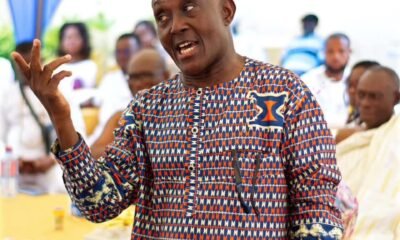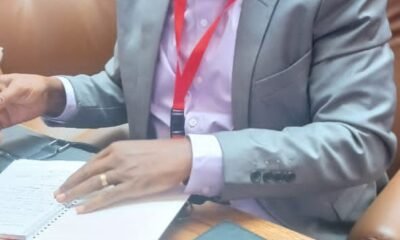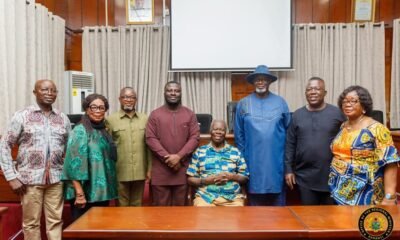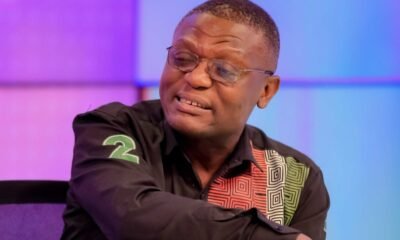News
Asset declaration is good, but lifestyle audit is key among public officials – Domelevo to Mahama
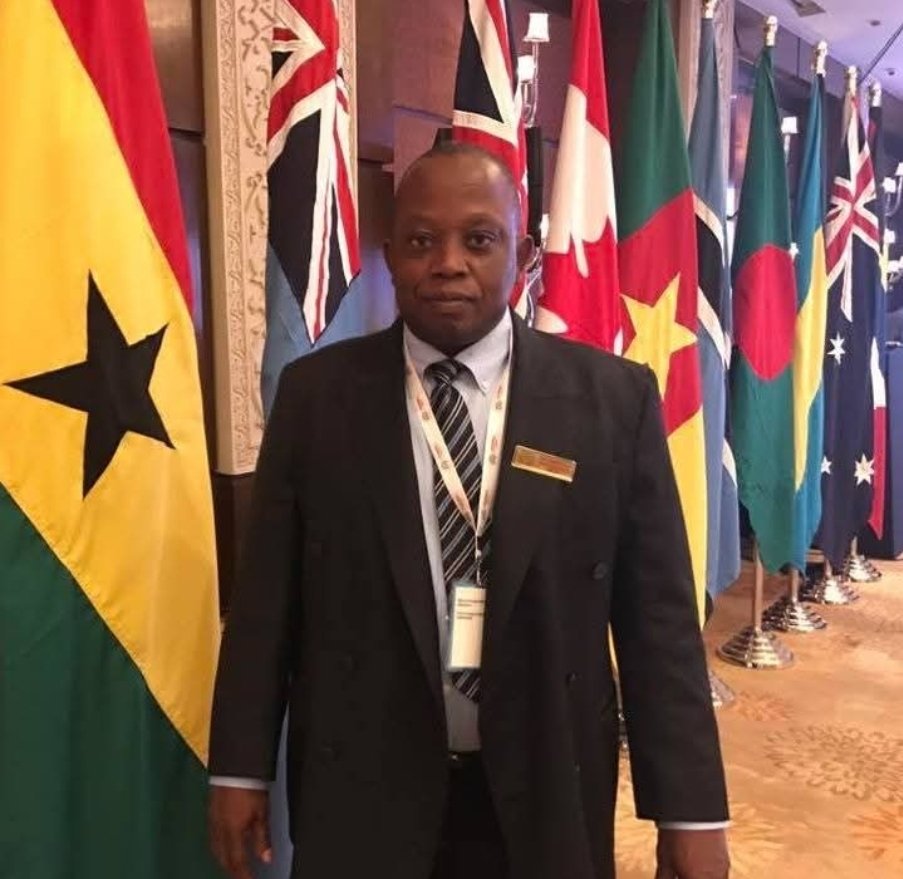
Former Auditor General Daniel Yaw Domelevo has commended President John Mahama for declaring his assets but stressed the need for a lifestyle audit to effectively curb corruption among public officials.
Speaking on Joy News’ PM Express on Tuesday, February 18, he acknowledged the President’s move as a “good gesture” but raised concerns about the process.
“It is good to see that the President has declared his assets,” he said.
According to him, “I was not too happy seeing the envelope being given to the Auditor General because that goes more or less to support what people have all along been saying—that you put your declaration in an envelope, seal it, and give it to the Auditor General, which is not the case anyway.”
“This should have gone through the entire process so that they capture it because you are supposed to verify the signature and be sure that the form has been properly completed. That at least should have been done, but it was not done,”he said.
While appreciating President Mahama’s directive for his appointees and public office holders to declare their assets by March 31, Domelevo expressed reservations about the timeline.
“To be honest with you, I think March 31 is too far away because the Constitution provides that it should be declared before you take office,” he argued.
He added that “Some will argue that Act 550 allows six months, but Act 550 contradicts the Constitution. I have a letter in my possession, written by former Attorney General Gloria Akuffo, confirming that the provisions of subsection 4(1) of Act 550 contradict the Constitution. However, we have all been upholding and following that.”
Daniel Domelevo was particularly pleased with Mahama’s commitment to hold non-compliant officials accountable.
“I’m also happy the President says those who don’t declare are going to be punished or asked to leave office. I think that will cut across everybody, and that will be good,” he stated.
However, the former Auditor General stated that asset declaration alone is insufficient in tackling corruption.
“This declaration is good. We must add to it what we call a lifestyle audit and the reversal of the burden of proof,” Mr Domelevo insisted.
“If we don’t do these two things so that we can audit and find out ‘how did you get this money?’, people are going to hide their resources or their assets with their families and friends. Everybody who is suspected of being an ally of a political or public office holder must be subjected to a lifestyle audit,” he concluded.
Source: Myjoyonline.com
News
IBEC-2025: RMU Ag. VC calls for innovative, inclusive strategies to accelerate Blue Economy growth
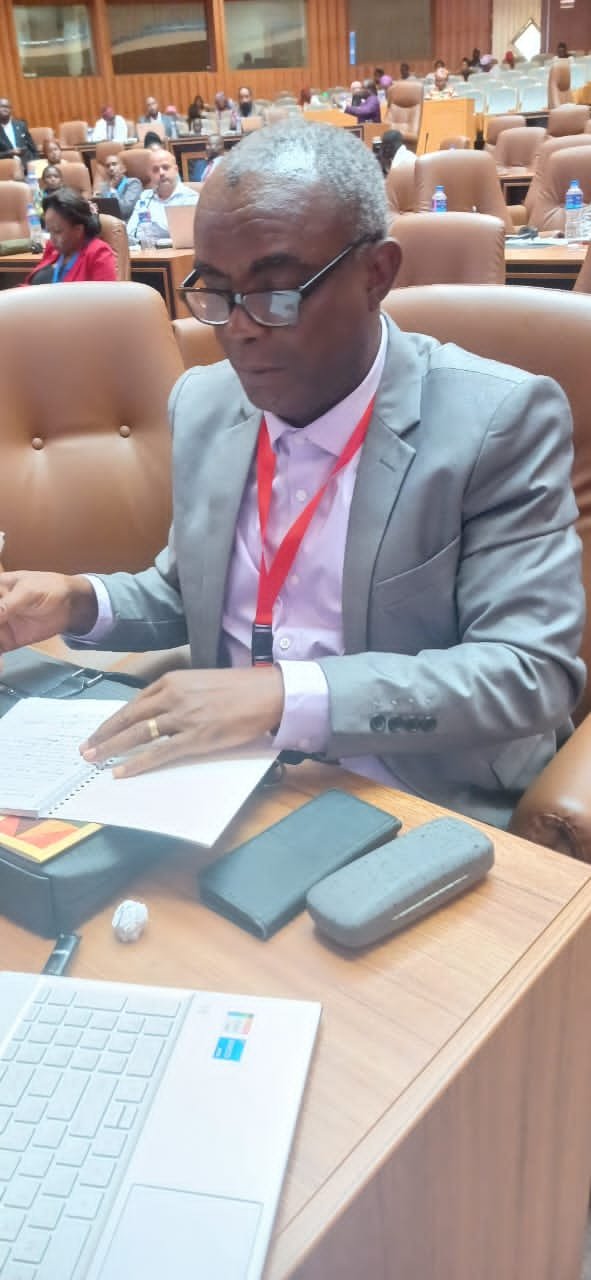
The Acting Vice Chancellor of the Regional Maritime University (RMU), Dr. Jethro W. Brooks Jr., has called for broader engagement among stakeholders within the sub-region to fully harness the potential of the blue economy.
Speaking at the opening ceremony of the second International Blue Economy Conference (IBEC-2025) currently underway in the Republic of The Gambia, he emphasised the need for industry players to be innovative and collaborate effectively to capitalise on opportunities within the ocean.
The three-day conference, which began on Wednesday, February 19, and is scheduled to conclude today, Friday, February 21, has brought together over 200 international stakeholders to exchange ideas on promoting the blue economy and fostering development across the continent by tapping into industry prospects.
The conference is being held under the auspices of the Ministry of Transport, Works, and Infrastructure of The Gambia, in collaboration with RMU in Accra and the Dar es Salaam Maritime Institute (DMI) in Tanzania.
Under the theme “Harnessing the Blue Economy: Leveraging for Innovative and Sustainable Development,” the conference has attracted high-profile delegates from the host country, The Gambia, as well as participants from Tanzania, Liberia, Sierra Leone, Nigeria, Ghana and other nations.
Among the dignitaries present were the Vice President of The Gambia, Muhammad B.S. Jallow, who officially opened the three-day event, the Gambian Minister for Transport, Works and Infrastructure, Mr. Ebrima Sillah, as well as several other Ministers of State.
In his remarks, the Ag. Vice Chancellor of RMU, Dr. Brooks Jr., stated that the blue economy focuses on leveraging oceanic resources to drive economic development while maintaining environmental sustainability.
“Our vision to utilise ocean resources for economic development in the sub-region can only be realized through innovation, collaboration and a commitment to sustainability,” he said.
While emphasising the importance of development through the blue economy, he also stressed the need for environmental sustainability.
“We must ensure that our development does not come at the expense of the environment. Therefore, we need to engage in practices that protect our water bodies, climate and the entire environment for future generations,” he added.
Dr. Brooks highlighted the critical role that RMU and other educational institutions must play in research and training for a sustainable future.
He also emphasised the importance of leveraging technology and innovation while prioritising the wellbeing of the ocean.
“A strong blue economy must ensure conservation, equity and inclusivity. It is vital to adopt a long-term approach that ensures the blue economy we develop today leaves a lasting legacy for tomorrow,” he stated.
“Let us come together to harness the potential of the blue economy for the benefit of the ocean, the people, and the climate,” he urged.
Dr. Brooks commended the organisers and sponsors for their efforts and expressed optimism for a brighter future with a focus on the blue economy.
Key presentations at the conference included topics such as the Blue Justice Approach to Blue Economy Policy Development and Implementation to Safeguard Small-Scale Fishers in Africa, Digital Transformation of the Blue Economy, Food Safety Concerns: A Priority in the Blue Economy, Aquaculture Innovation: Sustainable Practices for the Future of Seafood and Livelihoods, and Ocean Governance: Policy for Sustainable Blue Economy Development.
Additional topics included Climate Change Adaptation and Mitigation: Legal Instruments of Climate Change on Marine Environments and Coastal Communities, Ensuring Marine Safety and Security, and Sustainable Fisheries Management.
News
Ghana is safe; President satisfied with plans to roll out 24-hour economy
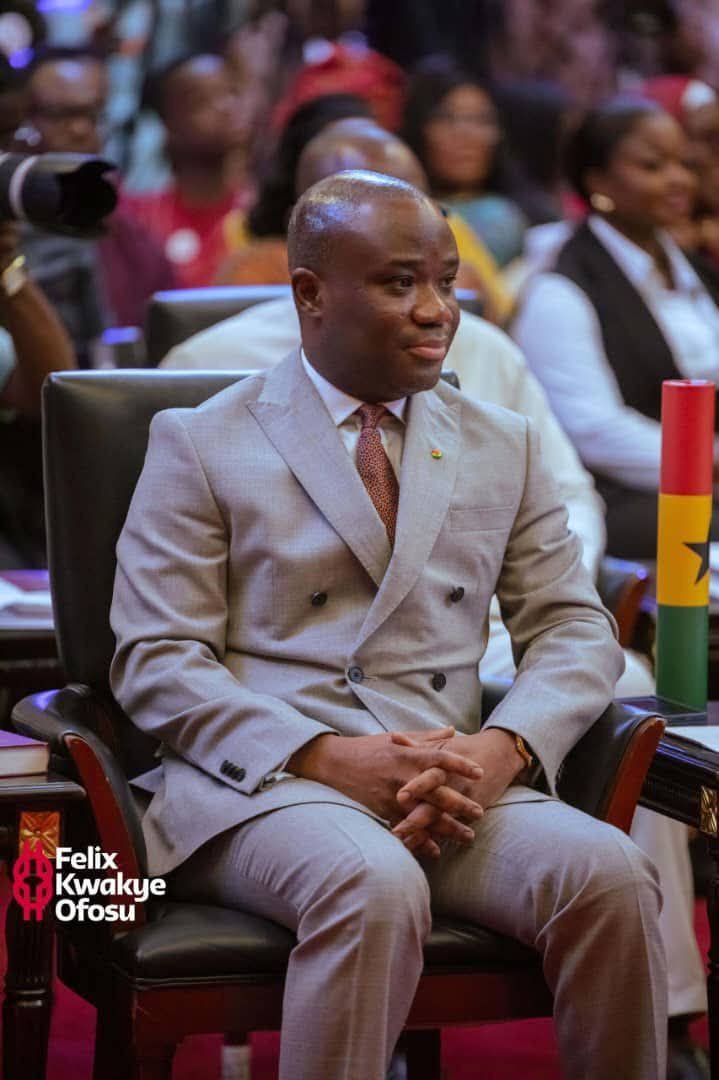
The Minister for Government Communications Felix Kwakye Ofosu has briefed the country of the outcome of President John Dramani Mahama’s first Cabinet Meeting.
“Ghana is Safe. The President has been fully briefed on the state of the economy and is satisfied with policy proposals to address the challenges. He has also been appraised on work done so far to roll out the 24-hour economy policy”, Minister for Government Communications Felix Kwakye Ofosu has revealed during the briefing.
Addressing the presidential press corps after the cabinet’s first meeting on Thursday, Mr Kwakye Ofosu said President John Mahama would appraise Ghanaians on the true state of the economy, which is worse than anticipated, when he presents the State of the Nation Address to Parliament next week.
According to the Minister, the cabinet was briefed on plans to “fully roll out President Mahama’s foremost policy towards transforming Ghana: the 24-hour economy.”
Minister for Finance, Dr Ato Forson, also told the cabinet that the economic situation is dire “and the numbers are even worse than we had known before the elections”, Mr Kwakye Ofosu emphasised.
He announced that more details on the economy and policies to reset will be discussed at the National Economic Dialogue slated for the 3rd and 4th of March 2025.
Various experts and stakeholders drawn from academia, civil society organisations, public servants, and other interested parties will discuss the economy and make recommendations that will be factored into the 2025 budget statement, which will be presented to Parliament on March 11




